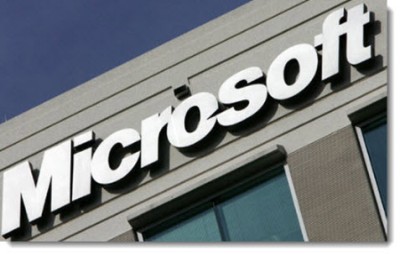Augmented reality is beginning to gain traction in many sectors, particularly entertainment. This technology is not new, having first been alluded to in 1901. In 1968, the first augmented reality headset was invented by Ivan Sutherland. Since then, the technology has been experiencing slow advances until very recently. In the 2000’s, the technology began receiving more attention as a way to, quite literally, change the way people see and experience the world around them. In the past few years, augmented reality has come to play a major role in the tech field, especially when it comes to mobile technology.
In entertainment, AR is beginning to play a big role. The technology is being put to use in a variety of mobile applications, many of which involve gaming. The game industry has taken a strong interest in AR because of its interactive nature. Companies like Sony and Microsoft are reportedly developing AR headsets that can transform a living room into an interactive gaming experience. Some small development studios are using the technology in their games to provide players with an experience they cannot find elsewhere.
 Beyond the novelty aspects of AR, the technology is seeing some practical use as well. In the medical field, augmented reality is being used as a sort of high-tech assistant. Surgeons are using the technology to perform delicate procedures with extreme accuracy. AR is also being used for biological studies, allowing researchers to see and manipulate 3D images of cells. AR is also used in architecture, where computer-generated images of a structure can be superimposed over real life locations.
Beyond the novelty aspects of AR, the technology is seeing some practical use as well. In the medical field, augmented reality is being used as a sort of high-tech assistant. Surgeons are using the technology to perform delicate procedures with extreme accuracy. AR is also being used for biological studies, allowing researchers to see and manipulate 3D images of cells. AR is also used in architecture, where computer-generated images of a structure can be superimposed over real life locations.
Augmented reality certainly has the potential to change the way people see the world, but its capabilities are often limited by existing hardware. Many mobile devices are simply not powerful enough to take full advantage of the features of AR. Larger computers can push the limits of AR, but tend to fall short as the use of AR becomes more complex. In the future, the limitations imposed on AR may be erased, and how the technology injects itself in daily life may be a marvel.
Microsoft acquires Iain Kennedy, former payments product manager for Amazon
Microsoft may be getting serious about mobile payments. The company has recently hired Iain Kennedy, who was the payments product manager for Amazon for the past six years. Kennedy has extensive experience in the payments field and his work has helped Amazon find more success in the mobile space. Kennedy is now the product manager of Microsoft’s commerce platform, which may signal that the company is planning to take a stronger approach on the matter of mobile commerce.
Microsoft shows modest interest in mobile payments
Microsoft has a relatively modest interest in mobile payments. The company has dabbled in the field of mobile commerce in the past, but found that the market was too young and volatile to continue putting any serious effort into the sector. Now, consumers throughout the world have become enthralled with the idea of mobile payments, and many are demanding new payment solutions from the companies that they favor. This demand was enough to push Apple into the mobile payments space, but Microsoft’s efforts may be delayed to ongoing concerns regarding security and the viability of the market.
Kennedy could help bring Microsoft into the mobile commerce market
 Kennedy has been involved in the developed of various mobile payment products. One of the products that he and his team at Amazon created was a digital wallet application, which could be used to make payments from a mobile device. This experience could go a long way with Microsoft, as the company has expressed interest in digital wallets in the past. A mobile wallet that is connected to the company’s gaming platforms could be well received by consumers, but exactly how popular it would be is impossible to say for certain.
Kennedy has been involved in the developed of various mobile payment products. One of the products that he and his team at Amazon created was a digital wallet application, which could be used to make payments from a mobile device. This experience could go a long way with Microsoft, as the company has expressed interest in digital wallets in the past. A mobile wallet that is connected to the company’s gaming platforms could be well received by consumers, but exactly how popular it would be is impossible to say for certain.
New projects have yet to be revealed by Microsoft
While Kennedy has become the product manager for Microsoft’s mobile commerce platform, his work with the company may be completely unrelated to mobile payments. There has been no information given about the products that he will be working on, apart from the suggestion that they could change the way people buy and sell products in the real world.
 Beyond the novelty aspects of AR, the technology is seeing some practical use as well. In the medical field, augmented reality is being used as a sort of high-tech assistant. Surgeons are using the technology to perform delicate procedures with extreme accuracy. AR is also being used for biological studies, allowing researchers to see and manipulate 3D images of cells. AR is also used in architecture, where computer-generated images of a structure can be superimposed over real life locations.
Beyond the novelty aspects of AR, the technology is seeing some practical use as well. In the medical field, augmented reality is being used as a sort of high-tech assistant. Surgeons are using the technology to perform delicate procedures with extreme accuracy. AR is also being used for biological studies, allowing researchers to see and manipulate 3D images of cells. AR is also used in architecture, where computer-generated images of a structure can be superimposed over real life locations.
 Kennedy has been involved in the developed of various mobile payment products. One of the products that he and his team at Amazon created was a digital wallet application, which could be used to make payments from a mobile device. This experience could go a long way with Microsoft, as the company has expressed interest in digital wallets in the past. A mobile wallet that is connected to the company’s
Kennedy has been involved in the developed of various mobile payment products. One of the products that he and his team at Amazon created was a digital wallet application, which could be used to make payments from a mobile device. This experience could go a long way with Microsoft, as the company has expressed interest in digital wallets in the past. A mobile wallet that is connected to the company’s 